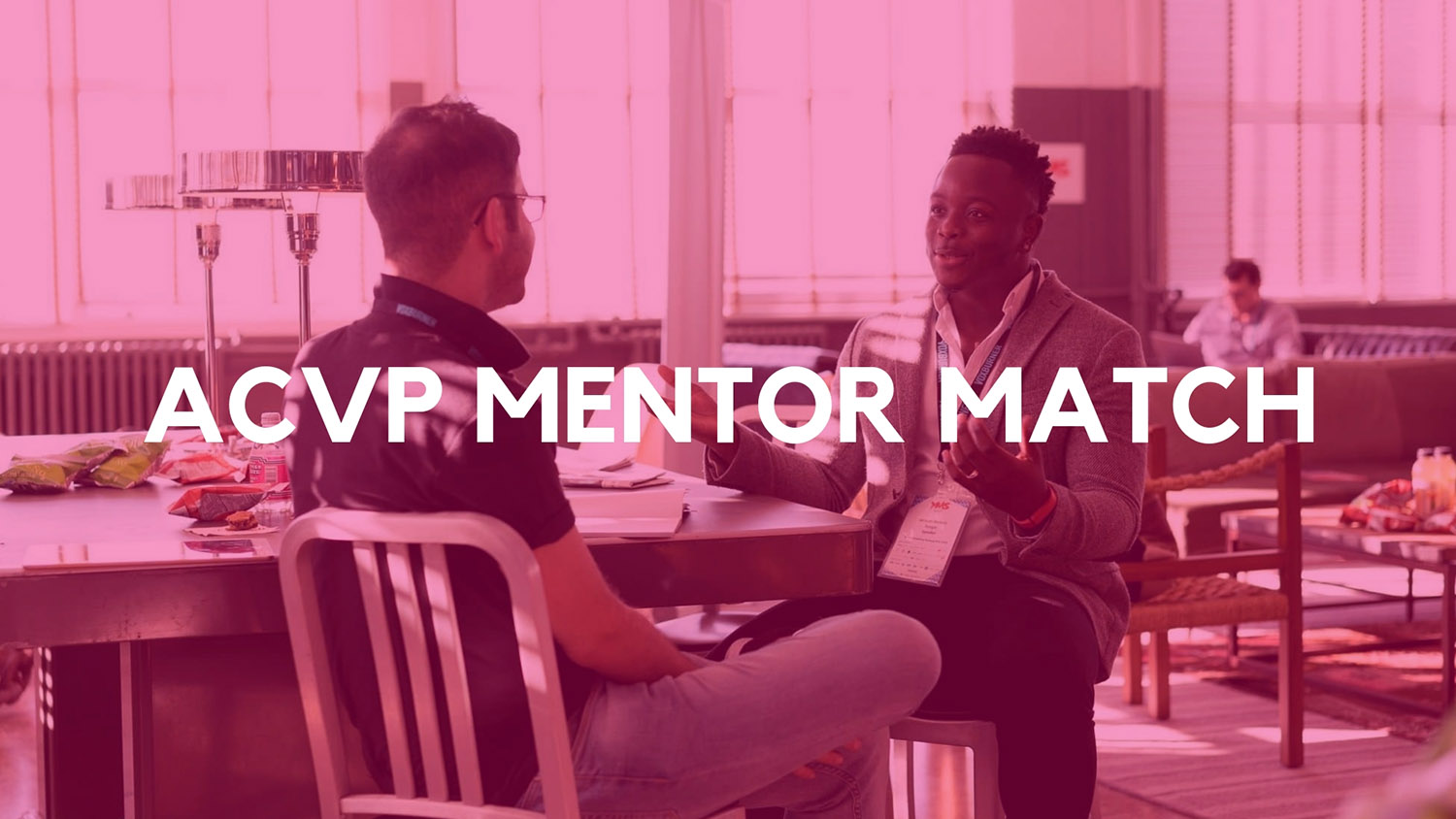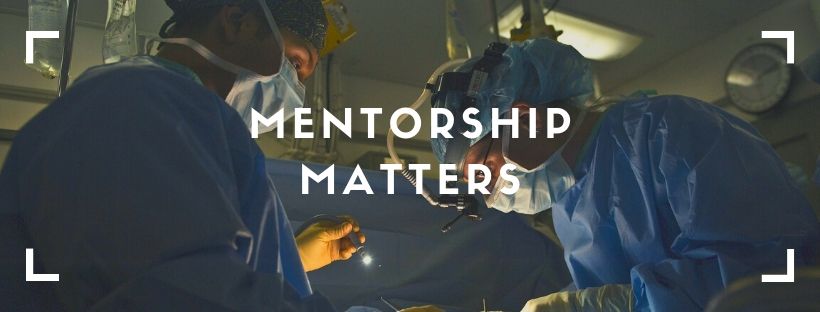Collaborative partnership and mentorship are practices woven through the development of modern medicine from antiquity to the present day. Diverse “lineages” dapple medical history, as scientists, innovators, and scholars have passed on their knowledge, discoveries, and the driving curiosity in which their pursuit of medical progress is grounded. Mentorships in cardiovascular services, for example, have launched innovations, developed personal excellence, and spread quality best practices.
In today’s environment, which is characterized by increasing specialization and a wide array of assisting clinicians and other professionals, the role of mentorships has never been more important or had more potential to shape the way healthcare is taught and delivered. But the amount of time and effort involved in developing and maintaining mentorships can be significant, and with the continued advancement and development of professional curricula, some may see the “above and beyond” nature of mentorships as burdensome.
Drawing on a few recent studies examining mentorship, testimonials from professionals who have participated in mentorship programs, and our own experience in the world of mentor-mentee relationships, this blog series seeks to answer some important questions about mentorships in cardiovascular services. Firstly, why are mentorships in cardiovascular services valuable? What are the benefits of mentorship to mentors and mentees?

Why are mentorships in medicine valuable?
Efficiency and Risk Reduction: As patients and healthcare providers alike continue to have decreasing tolerance for professional “learning curves,” there is growing need for professional education that optimizes learning and support while reducing risk.[1] Mentorships accomplish this complex goal by allowing new professionals to supplement their formal and experiential education with the lessons learned through the experiences of more seasoned professional peers.
Personalized Learning Experience: Thinking of mentorships as a sort of “living peer review” process is an effective way to understand the benefits they provide. Experienced professional mentors shape and guide the next generation of the healthcare workforce, not only advising them in technical aspects of the job, but also by shaping their judgments and exposing them to the more nuanced aspects of their profession. What’s more, this advice and guidance is individualized far more than any classroom or curriculum-based clinical experience, as mentors work to fill the gaps in the personal experience of their mentees.[2]
Codification of Medical “Culture”: Mentors have a unique opportunity to shape decision-making processes. Influencing professional judgment through the development of personal relationships, mentors are integral to the evolution of a quality culture in cardiovascular services, as these relationships help codify shared values and priorities over the course of their professional guidance with mentees.
Espousing the central values of medicine and patient-care in their conversations, and enacting these values in their work, good mentors provide a sense of consistency and amplify a sense of purpose for new professionals entering into a work environment that is constantly impacted by changing regulations, new technology, and diverse patient needs.
Professional Success Rates and Workforce Stability: The unique combination of both formal and informal training that mentorship provides accelerates the orientation and integration of new professionals into the workforce. The complex and supportive relationships between mentors and mentees have been correlated with more prolific grant publication (for both mentors and mentees), faster promotion, and a higher likelihood of staying at a given institution, which suggests greater job satisfaction.[3] Reframing professional pursuits in the greater context of one’s life might be especially important in a profession where rates of burnout tend to be higher than average – physicians alone burnout at a rate nearly double that of other professions.[4]
Greater Work-life Balance is a Benefit of Mentorship
Work-Life Balance & Quality Improvement: Unsurprisingly, many who participate in mentorship programs, as either a mentee or a mentor, note that their participation clarified how to succeed in non-professional aspects of professional life (e.g. work-life balance). Professional attainment of a “positive work–life climate” has been shown to impact the quality of healthcare teams and the care they deliver, as this balance is associated with “better teamwork climate, safety climate and increased participation in safety leadership WalkRounds with feedback.”[5]
The lessons learned throughout a mentorship pertaining to balancing the “triad” of self, relationships, and responsibilities[6] have effects that trickle into the accomplishment of work-related tasks. By helping professionals attain a greater sense of balance and fulfillment, mentorships improve the quality of work in team-based, stressful environments.

Mentorships in Cardiovascular Services Advance the Profession
Diversity & Advocacy: The potential of mentorship to improve the overall diversity of medical professionals should not be understated. As Garima Sharma points out in the 2014 article she authored with Andrew Freeman, “Finding the right mentor is particularly critical for the success and advancement of those less likely to be included in senior and leadership roles, such as women and under-represented minorities.”[7] This is a critically important effect of mentorship, as improving diversity in the health care workforce “is essential for the adequate provision of culturally competent care to our nation’s burgeoning minority communities.”[8]
Advancing the Field: Finally, mentorship provides a mechanism by which conservative fears and apprehensions surrounding new advancements in medicine might be overcome. This is due to the fact that a good mentor is at once a professional example as well as an advocate for his or her mentees. A notable example of this in the field of cardiology is found in the story of Andreas Grüntzig, whose mentor, Hans Schäfer, secured him a postdoctoral fellowship, ensuring the continuation of his work into percutaneous angiography, and eventually leading to his being brought to Emory University in 1980.[9],[10]
While Grüntzig is a metaphorical “giant” in the world of medicine for the impact his work has had on the field as a whole, without the assistance, guidance, and support of his mentors, he may never have been able to pursue percutaneous interventions with the vigor, tenacity, and eventual success that has made his contributions so notable. A mentor’s ability to acknowledge the differences in interest and skill between themselves and their mentees is particularly important when one considers that it is precisely these diverse interests and differences that ultimately lead to discovery and evolution in the world of medicine.

ACVP Facilitates Mentorships in Cardiovascular Services
For all of the above reasons, the Alliance of Cardiovascular Professionals hopes to make mentorship a core feature and benefit of professional membership. Enrich your personal and professional life by mentoring or being a mentee of a fellow cardiovascular technologist, registered nurse or radiologic technologist in cardiovascular care. Build your personal and professional network, or advance your expertise or career with guidance and insight from fellow professionals seeking excellence!
This relationship will take as much or as little time as you deem appropriate. Mentor relationships are meant to be a resource for members, and a fulfilling opportunity to meet and get to know fellow caring professionals. We believe relationship building will ultimately save you time—in getting your questions answered, for example, or furthering your career. ACVP members can take our mentor match survey to be matched with a mentor and/or mentee.
Cardiovascular Professionals Week 2020 begins soon on February 9. Making a little extra time to engage with other professionals is a great way to celebrate Cardiovascular Professionals Week 2020, build our community and advance our profession.
References
[1] Cohen, Meryl S., et al. "Mentorship, learning curves, and balance." Cardiology in the Young 17.S4 (2007): 164-174. https://www.ncbi.nlm.nih.gov/pubmed/18039410
[2] Platz, Joseph, and Neil Hyman. “Mentorship.” Clinics in colon and rectal surgery vol. 26,4 (2013): 218-23. https://www.ncbi.nlm.nih.gov/pmc/articles/PMC3835474/
[3] Straus, Sharon E., et al. "Characteristics of successful and failed mentoring relationships: a qualitative study across two academic health centers." Academic medicine: journal of the Association of American Medical Colleges 88.1 (2013): 82. https://www.ncbi.nlm.nih.gov/pubmed/23165266
[4] Reith, Thomas P. “Burnout in United States Healthcare Professionals: A Narrative Review.” Cureus vol. 10,12 e3681. 4 Dec. 2018, https://www.cureus.com/articles/16398-burnout-in-united-states-healthcare-professionals-a-narrative-review
[5] Sexton, J Bryan et al. “The associations between work-life balance behaviours, teamwork climate and safety climate: cross-sectional survey introducing the work-life climate scale, psychometric properties, benchmarking data and future directions.” BMJ quality & safety vol. 26,8 (2017): 632-640. doi:10.1136/bmjqs-2016-006032 https://www.ncbi.nlm.nih.gov/pubmed/28008006
[6] Cohen, Meryl S., et al. "Mentorship, learning curves, and balance." Cardiology in the Young 17.S4 (2007): 164-174. https://www.ncbi.nlm.nih.gov/pubmed/18039410
[7] Sharma, Garima V., and Andrew M. Freeman. "Mentoring: why it matters even after training." (2014): 1964-1965. https://www.ncbi.nlm.nih.gov/pubmed/25444150
[8] Cohen, Jordan J., Barbara A. Gabriel, and Charles Terrell. "The case for diversity in the health care workforce." Health affairs 21.5 (2002): 90-102. https://www.healthaffairs.org/doi/full/10.1377/hlthaff.21.5.90
[9] Barton, Matthias et al. “Balloon Angioplasty - The Legacy of Andreas Grüntzig, M.D. (1939-1985).” Frontiers in cardiovascular medicine vol. 1 15. 29 Dec. 2014, https://www.ncbi.nlm.nih.gov/pubmed/26664865
[10] King, Spencer B. "Where will the mentors come from?." (2011): 1253-1254. http://interventions.onlinejacc.org/content/jint/4/11/1253.full.pdf
